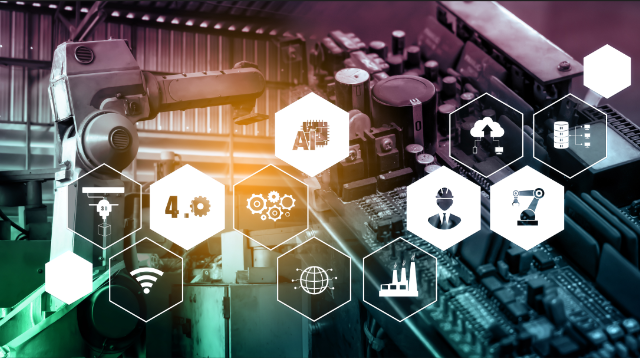

Rapid advances in artificial intelligence (AI) and synthetic biology are ushering in a new era of discovery, changing the way we conduct scientific research and solve complex problems. As the two fields continue to intersect, researchers are finding innovative ways to harness the power of artificial intelligence to accelerate the development of synthetic biology applications that can lead to breakthroughs in medicine, agriculture, and environmental sustainability.
In recent years, artificial intelligence has developed rapidly in the field of computer science and is committed to creating machines with intelligent behavioral capabilities. AI has demonstrated its ability to learn and adapt across fields such as natural language processing and image recognition, making it an important tool for researchers across disciplines. Synthetic biology, on the other hand, is an emerging field that combines biological and engineering principles to design and build new biological systems or redesign existing ones. By taking an interdisciplinary approach, it is possible to develop new solutions to pressing global challenges that will completely transform the industry.
One of the most promising applications of artificial intelligence in synthetic biology is the optimization of traditional circuits. Traditional circuits are the basis of synthetic biology because they control the behavior of engineered organisms. By using artificial intelligence algorithms to analyze and predict the behavior of these circuits, researchers can optimize their designs, resulting in more efficient and effective biological systems. For example, AI can help identify genes best suited for specific functions, such as producing therapeutic proteins or breaking down pollutants, and determine the optimal configuration of these genes within traditional circuits.
Another area where artificial intelligence and synthetic biology intersect is in the development of new drugs and therapies. Discovering a new drug typically takes years and costs billions of dollars in the traditional drug discovery process. Researchers can use artificial intelligence algorithms to analyze large amounts of biological data to more quickly and accurately identify potential drug targets and predict drug effects. Using synthetic biology to design organisms or molecules can simplify the drug development process and potentially reduce costs, making it possible to produce these drugs or therapies.
In agriculture, the combination of artificial intelligence and synthetic biology offers the potential to address the world’s growing food needs in a sustainable way. Using artificial intelligence to analyze data on crop performance, soil conditions and weather patterns can help researchers develop more resilient and higher-yielding crops. Synthetic biology could then be employed to engineer these crops with desirable characteristics, such as resistance to pests or drought, ultimately increasing agricultural productivity and reducing the environmental impact of agriculture.
The intersection of artificial intelligence and synthetic biology also has significant implications for environmental sustainability. Researchers are exploring the use of artificial intelligence to design synthetic organisms that can break down pollutants or convert waste into valuable resources. For example, artificial intelligence can be used to determine the most efficient metabolic pathways for converting carbon dioxide into useful chemicals, and synthetic biology can be used to engineer organisms capable of carrying out these processes.
As the convergence of artificial intelligence and synthetic biology continues to accelerate, researchers, policymakers, and industry leaders must work together to ensure that these technologies are developed and deployed responsibly. By fostering collaboration and promoting ethical considerations, we can harness the power of artificial intelligence and synthetic biology to drive a new era of discovery and innovation, ultimately benefiting society and the environment.
The above is the detailed content of The intersection of artificial intelligence and synthetic biology: a new era. For more information, please follow other related articles on the PHP Chinese website!
 Application of artificial intelligence in life
Application of artificial intelligence in life
 What is the basic concept of artificial intelligence
What is the basic concept of artificial intelligence
 How to open ramdisk
How to open ramdisk
 What is the difference between mysql and mssql
What is the difference between mysql and mssql
 ps delete selected area
ps delete selected area
 How to set the URL of tplink router
How to set the URL of tplink router
 Can chatgpt be used in China?
Can chatgpt be used in China?
 Google earth cannot connect to the server solution
Google earth cannot connect to the server solution




